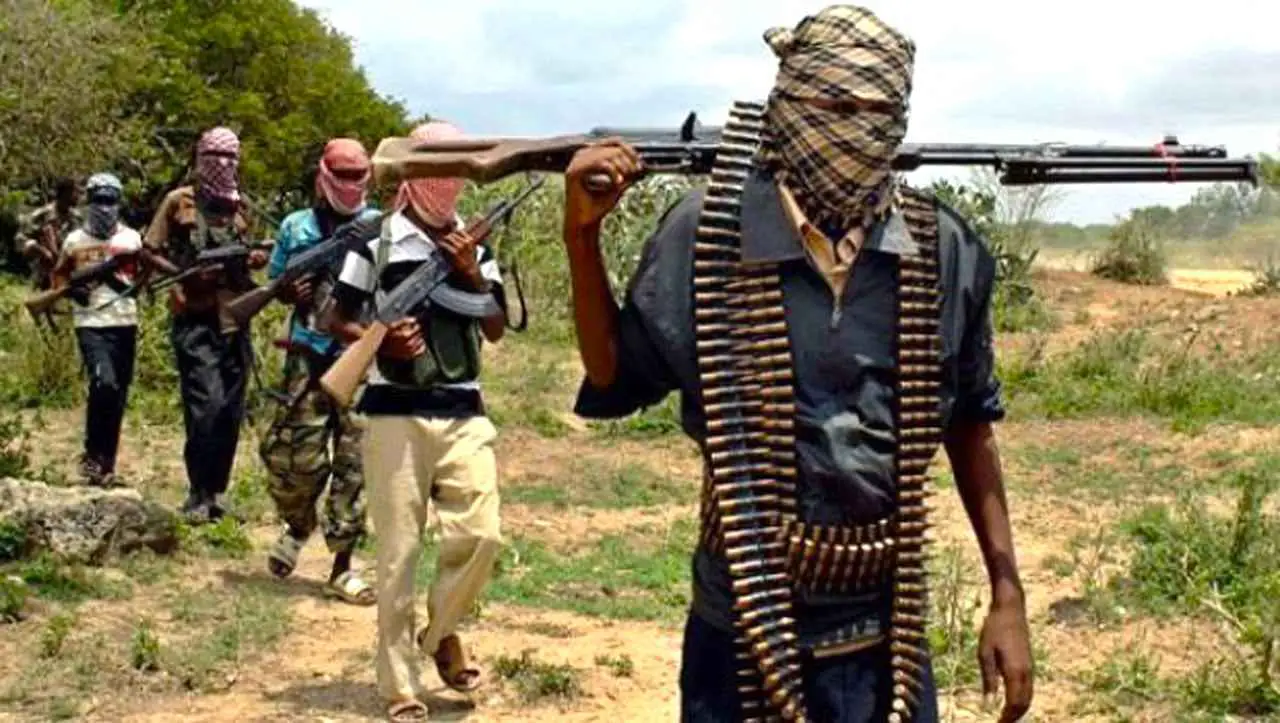
Although President Buhari has been reluctant to label bandits operating in Northern Nigeria as terrorists, he has stated that in some regions "there are essentially no difference."
Garba Shehu, Mr Buhari's spokesman, said this in reaction to a report in the UK-based news magazine The Economist that the security situation in Nigeria was deteriorating under Mr Buhari.
"However, the Economist misrepresented this as well: "bandits" with the resources and technology to fire down a military fighter plane are actually highly organized crime syndicates with vast resources and equipment. In this way, they are essentially the same as Boko Haram, who have been cornered.
Many Nigerians have petitioned President Muhammadu Buhari to declare the bandits terrorists, including the Nigerian Senate and Kaduna State Governor Nasir El-Rufai.
Since Mr Buhari took power, the bandits, a collection of armed groups operating primarily in northern and central Nigeria, have killed or kidnapped thousands of people.
Mr Shehu acknowledged the country's myriad security concerns in his statement, but said President Buhari was working to overcome them.
"The Economist is correct: Nigeria is under attack from a number of directions. They have come together not because of this government, but because it is this government that is addressing them concurrently and simultaneously – while no previous administration has attempted to fully address even one of them," the spokesperson added.
Mr. Shehu's complete statement can be found below.
ECONOMIST'S FLAWED, ANTI-NIGERIA COVER RELEASED BY THE STATE HOUSE PRESS: PRESIDENT BUHARI IS STRENGTHENING AFRICA'S DEMOCRACY
*Patriotic Nigerians' resilience and fortitude will see the country through difficult times.
The Economist is correct: Nigeria has four major dangers to its peace and prosperity: ISWAP/Boko Haram terrorism in the north-east, abduction and crime in the north-west, herder-farmer conflicts in the central belt, and IPOB terrorists' illusions in the south-east.
They have also come to a head under President Buhari and the All Progressives Congress (APC) administration, as The Economist correctly states. Yet they do so because, for so long, important decisions have been avoided and challenges never completely answered by prior governments, whether military or democratic, with the result that these threats have been exacerbated and allowed to fester and grow. Today, all four challenges are being combated at the same time, and only this President's administration has shown the courage and commitment to fight them.
Since the rise of Boko Haram more than two decades ago, the Buhari administration has worked to combat terrorism. Only the Buhari administration has attempted to interfere in the long-running problem of abduction and banditry. Only this President's administration has taken on IPOB, a violent terrorist group that destroys police stations and security agency buildings, as well as threatens individuals who break their Monday sit-ins, all while claiming the mantle of forefathers who fought a civil war half a century ago. Only the Buhari administration has attempted — in over a century – to identify the perpetrators.
Although the forms have changed and the threats posed by each have waxed and waned, one constant has been that since independence, no administration – military or democratic – has sought to fully address these threats to Nigeria as President Buhari's government does now.
Because the President has persisted on tackling these decades-long concerns throughout his time in office, the military is now deployed in practically all of Nigeria's states.
Boko Haram fighters in the north have been pushed back, with many now fighting under the breakaway banner of Islamic State's West Africa Province (ISWAP). Boko Haram began launching attacks across the country during the commencement of the President's term, particularly in the southern states and Lagos. They are currently surrounded and restricted, together with their ISWAP colleagues, on the outskirts of our country's border, unable to spread further.
The arrest and current trial of IPOB's terrorist leader in the South-East, which the Economist properly labels as "delusional," is the beginning of the group's collapse. The President's administration is redoubling its efforts to have IPOB properly recognized as a terrorist organization by our partners outside of Nigeria, a move that will cripple their capacity to trade criminal and extortion proceeds in international currencies. It's necessary to remind the Economist and the rest of the world that this group's aggressiveness and huge social media presence do not reflect public support, which they lack: All elected governors, politicians, and state assemblies in the South-East, which IPOB claims as part of their dream kingdom, have flatly rejected them.
President Buhari's administration is the only Nigerian government that has ever attempted to resolve centuries-old herder-farmer conflicts in the central belt. The Federal Farm initiative, which began immediately after the President's re-election, is the first of its type – and it's working: conflicts have decreased dramatically over the last year. Now that the program's effectiveness has been demonstrated, the government is appealing to state governors to join forces with the federal government to extend it by making state lands available to people who are interested.
The Economist has an opinion on banditry and kidnapping in the North-West and reported on it. This is the newest of the organized dangers to Nigeria's stability, despite the fact that it has been simmering for generations. However, the Economist incorrectly portrayed this as well: "bandits" with the resources and technology to fire down a military fighter plane are actually highly organized crime syndicates with vast resources and equipment, not "bandits." In this way, they are essentially the same as Boko Haram, which has been cornered. It will take time, but the President is steadfast in his determination to bring this threat to public order to an end.
Nigeria confronts several threats, as The Economist correctly points out. They are converging now not because of this government, but because it is this government that is addressing them concurrently and simultaneously – while no previous administration has attempted to fully address even one of them. That is the distinction between what came before and what we currently have. It is for this reason that the President and his party were re-elected in national elections two years ago with a larger majority.
Shehu Garba
President's Senior Special Assistant
(Publicity and Media)
24th of October, 2021
